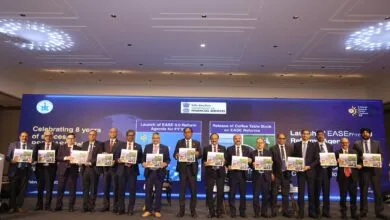State Bank of India’s Main Branch in Delhi completes 100 years, Know it’s Facts with Pakistan
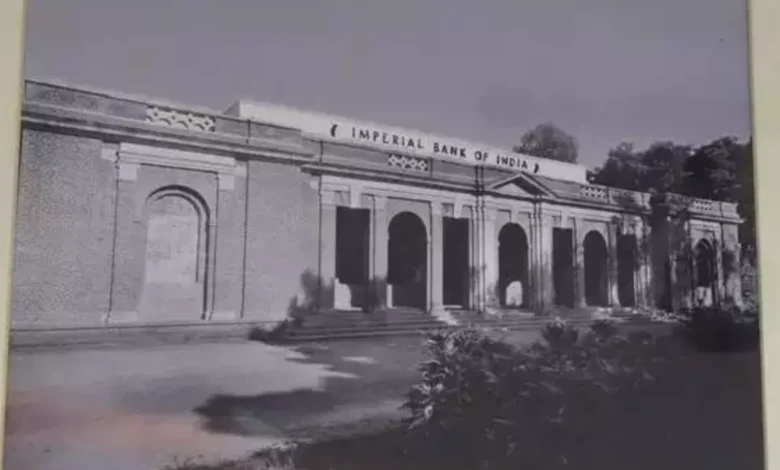
The State Bank of India (SBI) is known for its deep roots in India’s financial history, but few people know that its main branch in New Delhi holds a fascinating link to Pakistan. This branch, located on Parliament Street, is not just a regular bank—it is a silent witness to India’s journey through British rule, independence, and Partition. It recently celebrated 100 years of its service, marking a century of history intertwined with significant political events and leaders from both India and Pakistan.
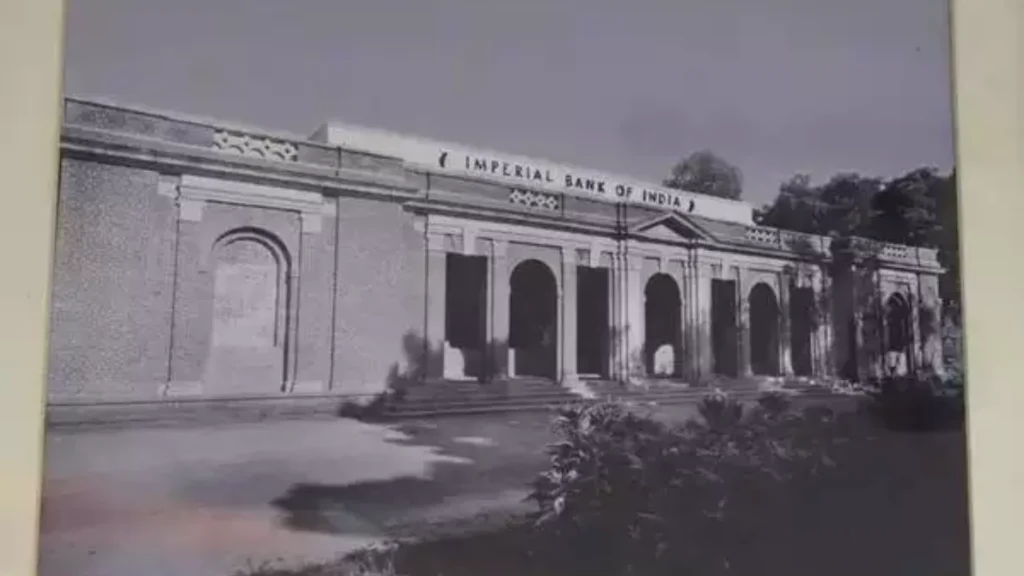
Tribute by Post Office: A Special Cover on Centenary Year of SBI, New Delhi Main Branch Parliament Street issued by Delhi Postal Circle was released by Col. Akhilesh Kumar Pandey, CPMG, Delhi Circle on 25-03-2025 at SBI, New Delhi Main Branch. The release event was also graced by Sh. M. Nagaraju.
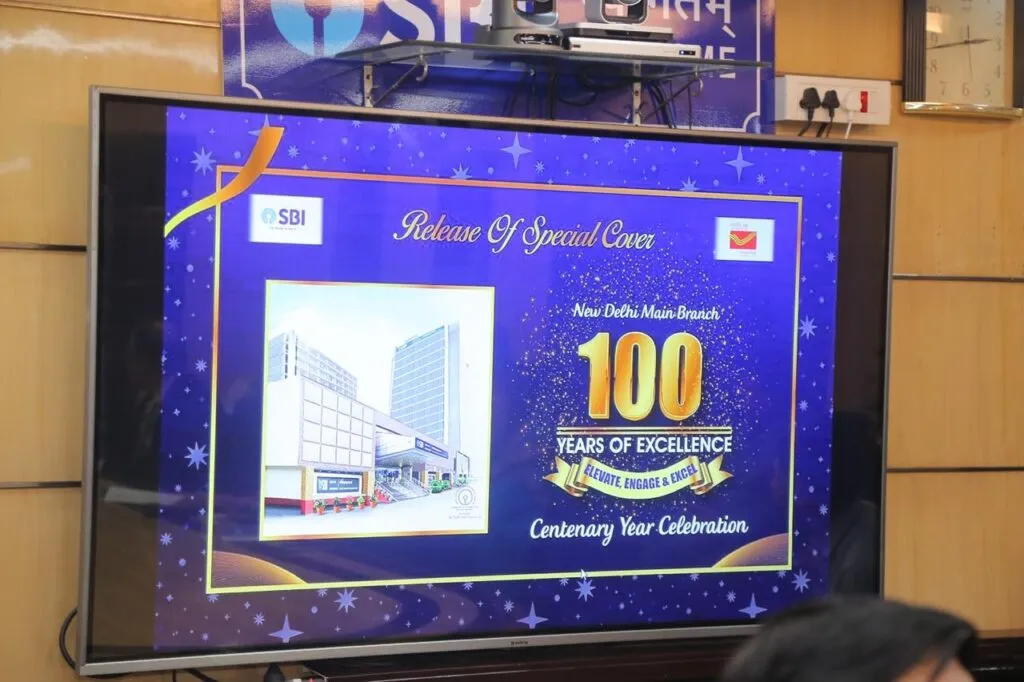
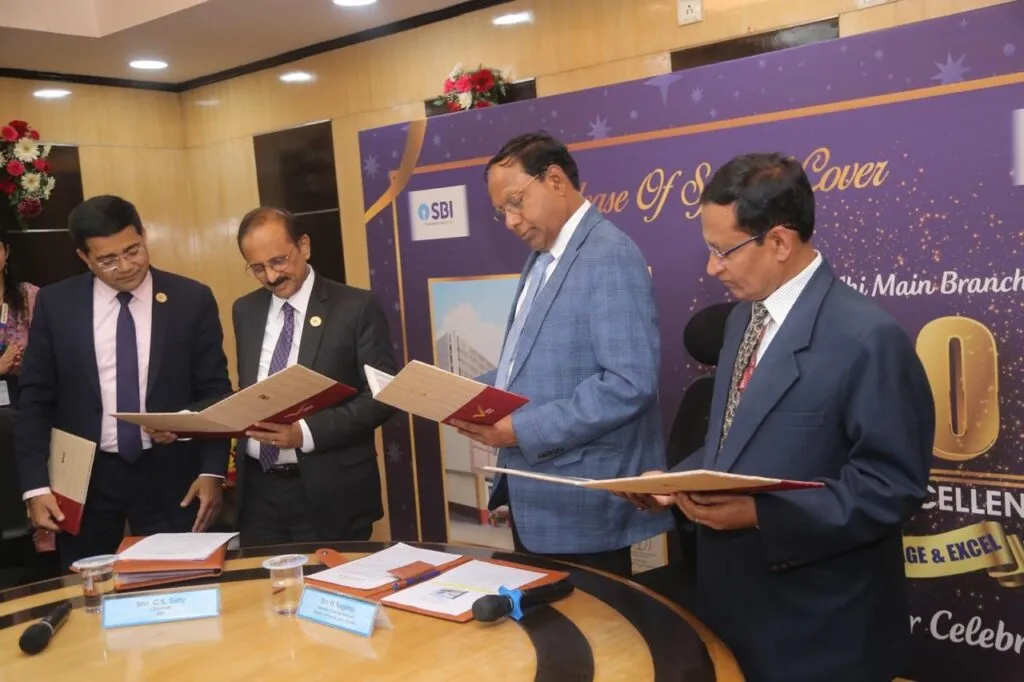
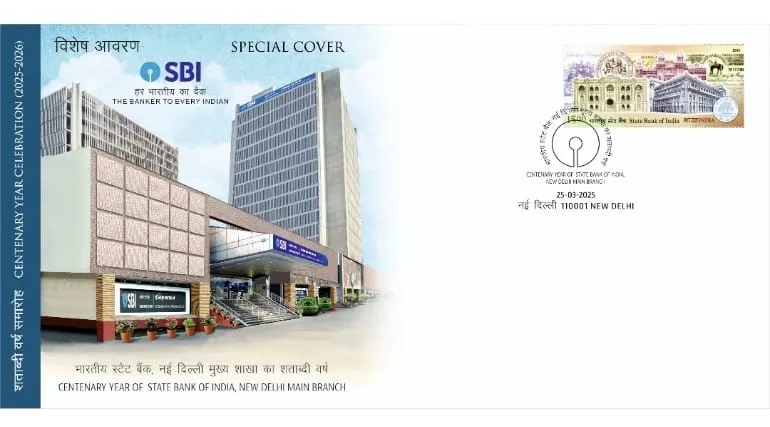
A Bank with a Historic Beginning
This iconic branch first opened on January 4, 1926, back when New Delhi was still establishing itself as the capital of British India. Originally called the Raisina Road branch, it was built to serve the growing financial needs of political leaders, businesses, and citizens in the heart of the capital. The building itself, with British-style architecture and grand interiors, reflected its importance.
A Connection to Pakistan’s First Prime Minister
One of the most interesting historical facts about this branch is its connection to Pakistan’s first Prime Minister, Liaquat Ali Khan. Long before Partition, in 1940, Liaquat Ali Khan opened an account here when the bank was still called the Imperial Bank of India. Seven years later, in 1947, he would go on to become the first Prime Minister of Pakistan. This shows how closely the financial and political histories of India and Pakistan were linked before independence divided the subcontinent.
Historic Accounts of Prominent Leaders
The branch’s old ledgers, which are carefully preserved even today, tell stories of several influential leaders. Malik Feroz Khan Noon, who became Pakistan’s seventh Prime Minister, had also opened an account at this bank in 1943. His signature, along with that of Liaquat Ali Khan, still appears in the old registers.
But the history isn’t limited to Pakistani leaders. Indian political figures and freedom fighters also used this branch. Rajkumari Amrit Kaur, India’s first health minister and a close ally of Mahatma Gandhi, handled her finances here in 1941. Dr. Rajendra Prasad, who later became India’s first President, used this branch to manage funds for the Constitution Club.
Corporate and Educational Links
The bank also catered to businesses and educational institutions. Tata Sons, one of India’s largest business groups, opened an account here in 1942. Zakir Hussain, who became India’s third President, signed documents on behalf of Jamia Millia Islamia in 1948. Other prominent figures like Neelam Sanjiva Reddy, Abul Kalam Azad, CD Deshmukh, and Jawaharlal Nehru also left their financial footprints here, reflecting how central this branch was to India’s evolving leadership.
A Modern Financial Powerhouse
Over the past 100 years, the branch has transformed into a major financial hub. Debasish Mishra, SBI’s Chief General Manager for the Delhi Circle, explained how the branch evolved from its early days. Initially built at a cost of ₹1.75 lakh, it is now one of the most significant branches in the country. Today, it handles about ₹70,000 crore in business and contributes nearly 14% of Delhi Circle’s total banking operations.
SBI’s Role in National Service
The bank continues to play a critical role in national service. SBI Chairman Challa Sreenivasulu Setty highlighted how the branch supported the country during the Covid-19 pandemic by opening over 23,000 Foreign Contribution Regulation Act (FCRA) accounts. Parliament had passed a law requiring all FCRA accounts to be managed by SBI, and the New Delhi main branch rose to the challenge by efficiently handling this massive task.
A Century of Legacy and History
SBI’s New Delhi main branch is more than just a bank. It is a treasure trove of history, holding stories of India’s political and financial evolution. From its connection to Pakistan’s leaders to managing the finances of India’s freedom fighters, this branch has witnessed some of the most important moments in South Asian history. As it celebrates 100 years, it continues to stand tall as a symbol of resilience, legacy, and service to the nation.
